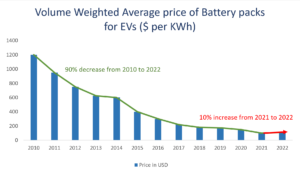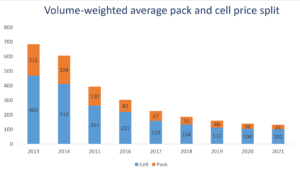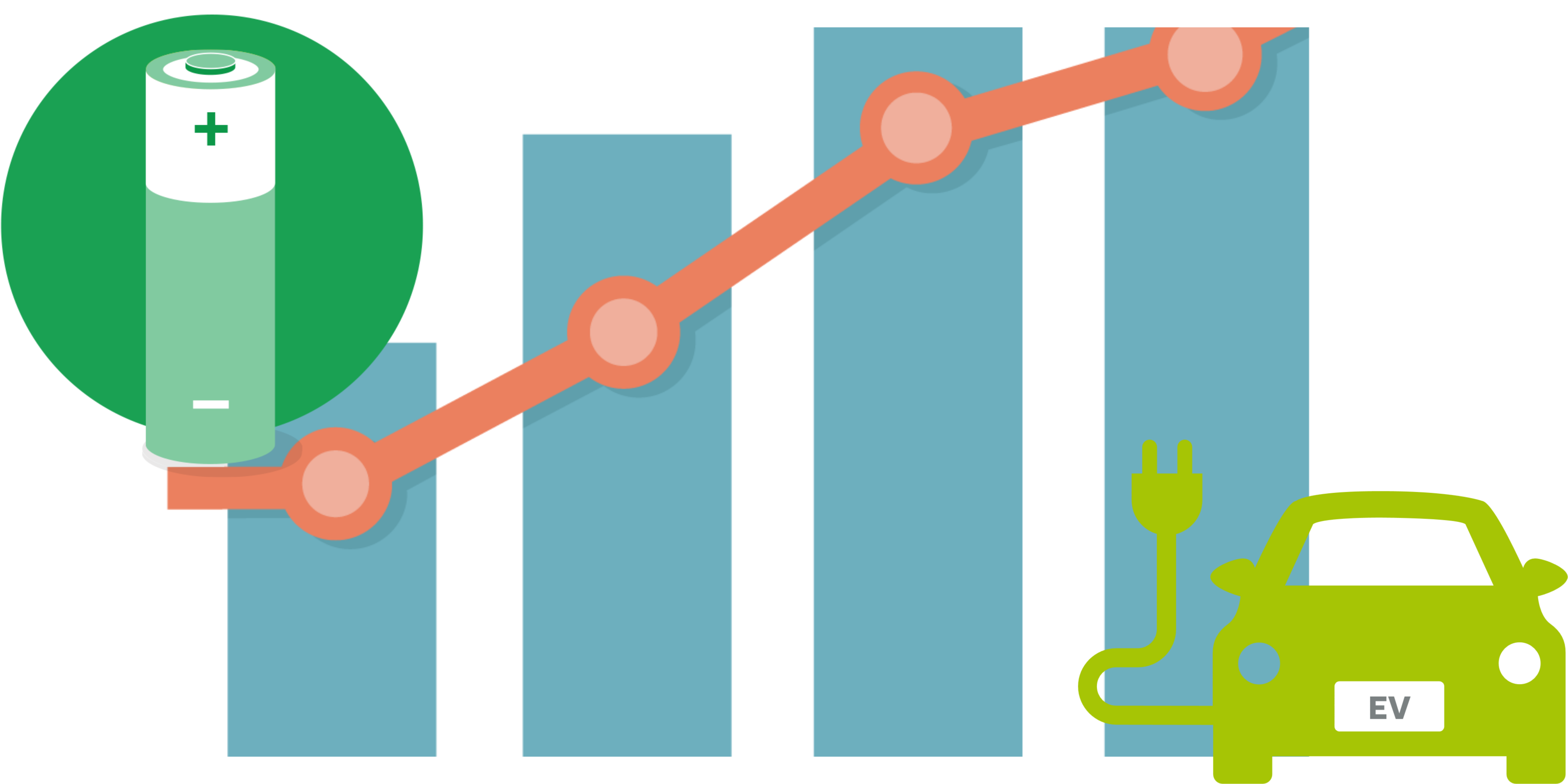Increase in battery prices of electric vehicles
Selling prices of Electric Vehicles (EVs) have seen an exponential decline during the past decade. However, the last two years paint a completely different picture. The raw material costs have shot up, at least 25 percent, leading to an increase in the prices of electric four wheelers in the range of 473 USD to 1576 USD in markets like China. There is a sense of worry in the industry and companies will start to find ways to try and mitigate this.
According to The Economic Times, global electric vehicle sales were up 109 percent in 2021. The total global car market which includes EVs as well as Internal Combustion (IC) engine vehicles grew just four percent in 2021 as the industry continued to suffer with chip shortages. And as of 2022 the EV sales represented just nine percent of all passenger car sales. In 2021, the electric two wheeler segment ruled the EV market with around 48 percent followed by the 3 wheeler with 45 percent in India. Overall, we continue to see a boom in the sales of EVs. This is majorly driven by the sales of four wheelers in China and Europe. In China, the electric car sales tripled in 2021 to 3.4 million, which is more than all EVs sold around the world in 2020. Europe in 2021 saw an increase of nearly 70% sales of electric cars. On the contrary, the growth rate of electric four wheelers in India and Brazil has not taken off yet when compared to the two wheelers and commercial buses because of the high price tags that these EVs carry and also because of the lack of charging infrastructure, says an article by Fortune India. Even though the sales are increasing year on year, the prices of EVs seems to have taken a different turn. A report on Statista says that the price of EVs have increased in the last two years due to the rising commodity prices. With batteries keeping EV prices high (40-45% cost of EVs is battery), the increasing raw material cost certainly does not help. Even in China, there is a steep increase in the cost of buying an electric car. In addition to the increased battery costs, there has been a reduction in subsidies offered. Iccsino talks about how there’s been a drastic increase in the prices of cars with the increase in prices varying from 472 USD to 1572 USD.

Figure 1: Rising commodity prices slows down battery price drop
An article from batteriesnews throws light on the cost of a battery pack when compared to the cost of cells, that is the cell to pack cost ratio. If we look at the values from 2013, we see that the ratio stood at 70:30, that is 70 for the cell and 30 for the pack. Over time, the cost of the pack in terms of percentage seems to have changed with . The cost of the cells from 2015 to 2021 has reduced by 61 percent but the pack’s price on the other hand has drastically decreased by 76 percent. In 2021, the ratio stood at around 77:23 . Prices fell further in 2021 as the adoption of the low-cost lithium iron phosphate (LFP) cathode chemistry grew, while the usage of pricey cobalt in nickel-base cathodes decreased. In 2021, LFP cells were over 30% cheaper than Lithium-Nickel-Manganese-Cobalt-Oxide (NMC) cells on average. However, even low-cost chemistries like LFP, which is particularly vulnerable to lithium carbonate pricing, have felt the pinch of increased costs. Chinese producers have increased LFP pricing by 10% to 20% since September of 2021.

Figure 2: Price split of the cost of the cell and battery
This increase in price will affect the sales of EVs globally. There’s already a huge difference between the initial cost of owning an EV and an IC engine vehicle that belong to the same segment. Now the increasing raw material costs will certainly bring a larger gap between the prices. To keep the cost of purchasing EVs and maintaining one low, battery costs certainly play a huge role. The inevitable rise in raw material costs will push the EV OEMs and battery pack manufacturers to develop better batteries and improve their battery management systems. This further strengthens the need for an intelligent battery management system, a robust protection and monitoring system for batteries. Moving into the future, it is certain that innovation of batteries and utilization of the intelligent battery management systems available will be on the forefront of EV growth and development.
Thumbnail image credit: google.com and pinclipart.com

